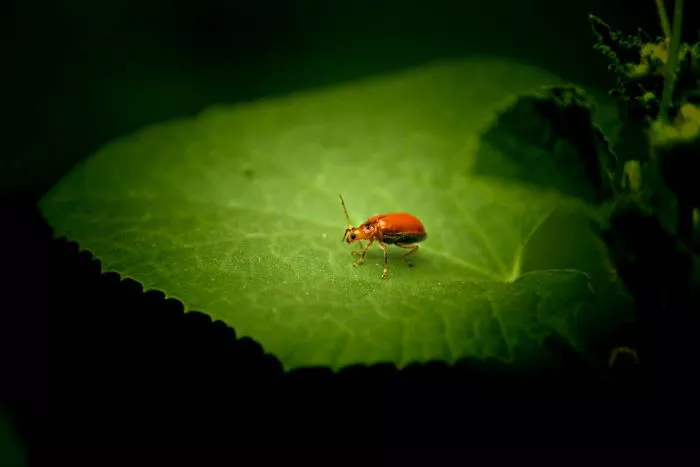Maintaining a healthy garden is a rewarding endeavor, but it often comes with challenges, particularly from pests. Insects and other pests can damage plants, reduce yields, and create an unhealthy environment. To protect your garden, it is essential to implement effective pest control strategies. This article will discuss various methods to keep pests out of your garden, focusing on prevention, natural remedies, and integrated pest management.
Understanding Garden Pests
Garden pests can be categorized into several groups, including insects, rodents, and larger animals. Common insect pests include aphids, caterpillars, beetles, and spider mites. These pests can feed on plant leaves, stems, and roots, leading to stunted growth and disease. Rodents such as rabbits and squirrels may also invade gardens, eating seeds and young plants.
Understanding the specific pests that threaten your garden is crucial. Observing your plants regularly can help you identify any pest problems early. Early detection allows for more effective management and reduces the likelihood of severe damage.
Prevention Strategies
Preventing pests from entering your garden is the first line of defense. Several strategies can help create an environment that discourages pests.
Healthy Soil
Healthy soil is the foundation of a thriving garden. When plants are well-nourished, they are more resilient to pest attacks. Adding organic matter, such as compost, improves soil structure and fertility. Healthy plants are less attractive to pests and can better withstand damage.
Plant Selection
Choosing the right plants can significantly reduce pest problems. Native plants are often more resistant to local pests. Additionally, some plants naturally repel insects. For example, marigolds are known to deter nematodes and aphids. Incorporating a diverse range of plants can create a balanced ecosystem that attracts beneficial insects while deterring harmful ones.
Crop Rotation
Practicing crop rotation can help prevent the buildup of pests and diseases in the soil. By changing the location of specific plants each season, you disrupt the life cycles of pests that may be present. This method is especially effective for vegetables and annual flowers.
Physical Barriers
Using physical barriers is an effective way to keep pests out. Garden nets, row covers, and floating row covers can protect plants from insect damage while allowing sunlight and moisture to reach them. Fencing can deter larger animals such as rabbits and deer. Ensure that fences are tall enough and buried a few inches into the ground to prevent burrowing.
Natural Remedies
If pests do invade your garden, several natural remedies can help manage them without resorting to chemical pesticides.
Neem Oil
Neem oil is a natural pesticide derived from the seeds of the neem tree. It disrupts the life cycle of insects, preventing them from feeding and reproducing. Neem oil is effective against various pests, including aphids, whiteflies, and spider mites. To use neem oil, mix it with water and a few drops of dish soap, then spray it on affected plants.
Insecticidal Soap
Insecticidal soap is another effective natural remedy. It works by suffocating soft-bodied insects like aphids and spider mites. You can purchase pre-made insecticidal soap or make your own by mixing pure liquid soap with water. Spray the solution directly onto the pests, ensuring thorough coverage.
Diatomaceous Earth
Diatomaceous earth is a natural powder made from the fossilized remains of tiny aquatic organisms called diatoms. It works by damaging the exoskeletons of insects that come into contact with it, leading to dehydration. Sprinkle diatomaceous earth around the base of plants to create a barrier against crawling insects.
Companion Planting
Companion planting involves growing certain plants together to enhance growth and deter pests. For example, planting basil near tomatoes can repel whiteflies and improve tomato flavor. Research companion planting combinations that work well in your garden to maximize pest control and plant health.
Integrated Pest Management
Integrated Pest Management, or IPM, is a holistic approach to pest control that combines various strategies for effective management. IPM focuses on prevention, monitoring, and control.
Monitoring
Regularly inspecting your garden is crucial for identifying pest problems early. Look for signs of pest damage, such as chewed leaves or discolored plants. Use traps to monitor pest populations and determine when intervention is necessary.
Threshold Levels
Establish threshold levels for pest populations. This means determining the number of pests that can be tolerated before action is required. Not all pests need immediate control, and some may not cause significant harm. Understanding when to act can help manage resources effectively.
Control Options
If pest populations exceed threshold levels, consider various control options. These can include cultural practices, biological controls, and chemical treatments if necessary. Always prioritize non-toxic methods and use chemicals as a last resort.
Conclusion
Keeping pests out of your garden requires a proactive and integrated approach. By focusing on prevention, utilizing natural remedies, and implementing Integrated Pest Management strategies, you can create a thriving garden environment. Regular monitoring and healthy gardening practices will help you maintain a beautiful and productive garden. With these methods, you can enjoy the fruits of your labor while minimizing pest-related challenges.
Related topic:


